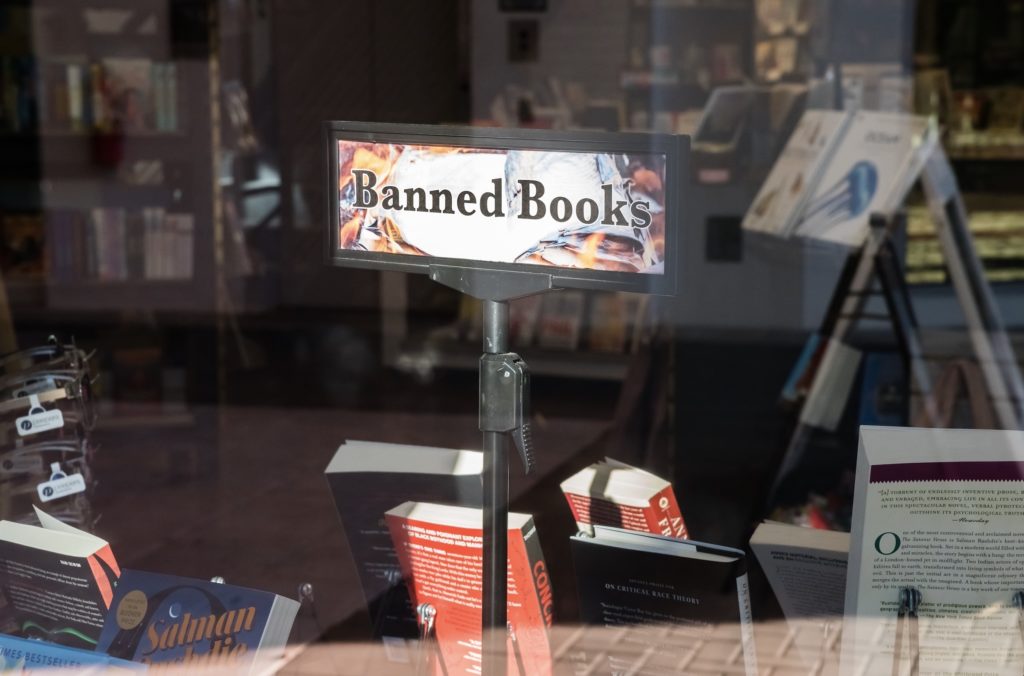One of the hallmarks of totalitarianism in modern times has been control over the spread of ideas and information. Tyrants understand that for people to be malleable, they must be kept in the dark, blind to realities that challenge the narratives and purposes of their rulers.
Freedom from tyranny, then, is predicated on access — to factual history, to knowledge of current events, to literature, to religious experience, to a broad swathe of opinions and ideas. Ignorance, it turns out, is not bliss. Ignorance is slavery.
Examples of such attempts at censorship include Nazi Germany, which in the 1930s burnt piles of books in bonfires thought to be incompatible with Nazi ideology. More recently, the Communist government in China has found more subtle methods to exert such control in the information age.
Internet searches in China for “Tiananmen Square Massacre” or even the date of the infamous event, June 4th, return no results. Yes, there was an unprecedented protest in Beijing 33 years ago which was ruthlessly put down, but the regime would rather the people forget, lest they be inspired by the martyrs’ courage.
These are real examples of censorship, and they rightly provoke outrage. What’s not an example of censorship is a recent story making headlines involving Florida’s public schools.
Officials at the state’s Department of Education have been accused of banning such classic works as “The Diary of Anne Frank” and “To Kill A Mockingbird.” In this case there are no reports of ancient ritual fires. Instead, just a video of eerily empty shelves and prosaic library carts filled with books.
As a member of the Florida’s Board of Education, I’ve had a unique opportunity to review the facts of this in an official capacity. Its other members and I are briefed extensively on the laws and regulations which we are tasked with implementing, including public commentary both for and against.
At our open meetings, members of the public address us in person with their concerns and opinions. It’s heartening to see and hear people of all types who take the education of our youth as seriously as it deserves.
On the topic of “book banning,” the truth is quite unspectacular. No books are actually banned — a list of proscribed titles does not exist at the Department of Education. In fact, classics like “To Kill a Mockingbird” are not only still on the shelves, they are recommended reading. The videos of carts full of books were taken during the usual annual recataloguing of library material. The books were not on their way to a bonfire.
As for “The Diary of Anne Frank,” parents in one district were shocked to find a graphic novel depicting her life in a school library, which took some ugly liberties with the story, including injecting a sexually explicit scene between Anne and a friend. The book was not only sexually explicit, it minimized the tragedy of the holocaust.
They used their right under a recently passed law to formally object to the book, an objection to which the district is obliged to respond and resolve. Anne’s diary, her own unexpurgated account of personal catastrophe, remains available in schools up and down Florida.
And so the process goes, starting usually with a mother or father aghast at the content of a child’s backpack. But the book no longer has to come home to be discovered. We’ve increased transparency in our state, so that instructional materials accessible to children are cataloged and lists posted online for parents to explore.
I wish it weren’t so, but sexually explicit and pornographic books have made it onto library shelves, and they need to be removed entirely. Some books may have strong content but are appropriate to the high school level. Those books don’t belong in elementary and middle-school libraries.
Interestingly, the strongest attacks on Florida’s curation of books for schoolchildren come from the same ideological cohort that openly and enthusiastically promotes censorship for everyone, in and out of school. Several of Dr. Seuss’ books are no longer in print, as of 2021, because of imagery deemed offensive to imaginations obsessed with racism. Ronald Dahl’s famous children’s books have been scrubbed, for instance changing “black” to “dark” even when the adjective did not refer to skin color. Ryan Anderson’s book criticizing transgender ideology “When Harry Became Sally” has been dumped by Amazon. The list goes on.
As happens a lot these days, the accusation of book burning is a misdirection and a projection. It’s not totalitarianism to allow parents to explore the content of their children’s educational materials and to object to indecent and damaging books.
But outside the schoolroom, certain new orthodoxies about race and sexuality are taking hold. They leave little room for judging a man by the content of his character, not the color of his skin, or upholding the complementarity of man and woman that beautifully forms the family.
More and more, those are the kinds of ideas on their way to a bonfire.

